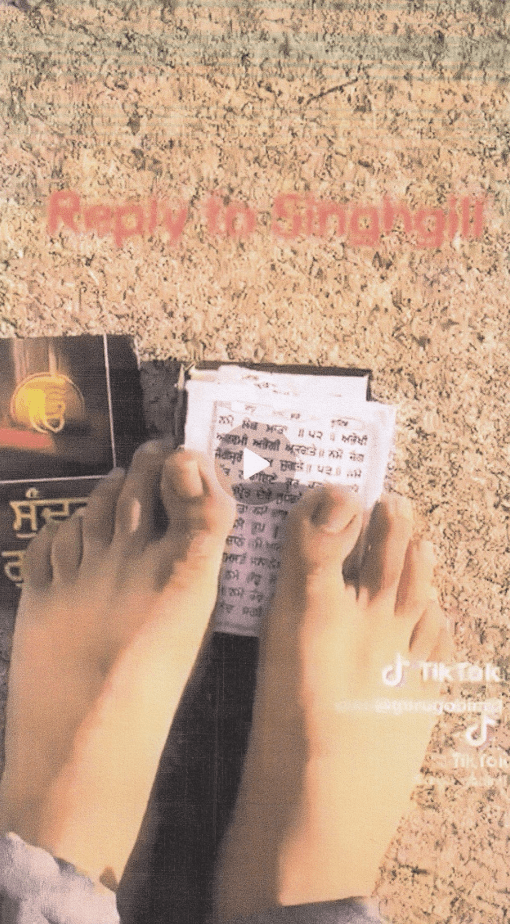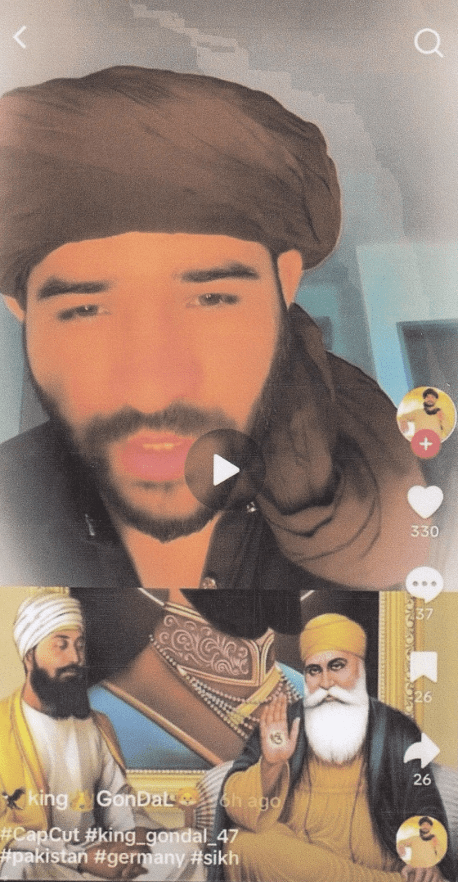AI Generated Summary
- Efforts from both Sikh and Pakistani Muslim leaders to mediate and encourage the removal of offensive content have worked in the past, but without a broader, more concerted effort to prevent such incidents from happening in the first place, these skirmishes will continue to flare up.
- One of the central figures in the recent resurgence of tensions is Hassan Gondal Dogar, a Pakistani origin social media user based in Berlin, who has become infamous for his vocal criticisms of Sikhism.
- In Italy and Germany, the situation has worsened, with Sikh and Pakistani Muslim users continuing to post hateful videos aimed at each other’s religious beliefs, further deepening the animosity.
In an era where social media platforms serve as the digital town square, their ability to amplify both solidarity and division has become starkly apparent. Over the last several months, a dangerous and deeply troubling online conflict has erupted between Sikh and Pakistani Muslim communities, primarily centered around TikTok videos. What began as isolated acts of disrespect towards each other’s religious beliefs has quickly snowballed into a volatile cycle of offense, retaliation, and threats, with both sides fueling an alarming escalation of hatred.

The conflict began with offensive TikTok videos targeting the religious sentiments of both Sikhs and Pakistani Muslims. Insults toward Sikh scriptures like the ‘Sundar Gutka,’ alongside disrespectful acts involving Sikh religious figures, were met with equal ire from Sikh radicals who retaliated with posts attacking Islamic symbols. Social media, especially platforms like TikTok, acted as a stage for this exchange of hostilities, turning personal grievances into a spectacle of sectarian hatred, witnessed and engaged with by thousands.
What should alarm us most about this digital skirmish is its rapid transformation from online provocations to real-world consequences. One of the central figures in the recent resurgence of tensions is Hassan Gondal Dogar, a Pakistani origin social media user based in Berlin, who has become infamous for his vocal criticisms of Sikhism. His inflammatory videos, seen as blasphemous by Sikhs, have made him a target of hardline Sikh groups, some of whom have openly discussed plans to attack him. In response, Pakistani Muslims have issued chilling threats of retaliation, with warnings to target Sikh shrines and communities in Pakistan should any harm befall Gondal.
The cycle of online provocations escalating into real-world violence is not unique to this conflict, but it underscores how precarious the boundary between digital and physical spaces has become. Social media, with its ease of access and wide reach, provides the perfect breeding ground for unchecked hatred. The insults are seen by millions, and reactions come in waves—many of them extreme. This, coupled with the ease with which users can hide behind the anonymity of online handles, such as ‘Singh Gill’ and ‘Roger Sandhu,’ further emboldens those who might not dare express such vitriol in person.

However, the most disturbing aspect of this feud is the tangible threat of violence. The once digital spat now threatens to spiral into physical attacks, as witnessed in threats against Gondal and warnings of reprisals against Sikh communities. When online animosity spills into real life, it not only threatens individual lives but risks destabilizing the tenuous coexistence of these communities, particularly in Europe, where many Sikhs and Pakistani Muslims share neighborhoods, schools, and workplaces.
This digital feud has now crossed borders, with inflammatory posts spreading across Europe and Australia, igniting tensions among the Sikh diaspora and Pakistani Muslim communities alike. In Perth, Australia, a TikTok video involving disrespect to Sikh scriptures filmed outside a gurdwara provoked outrage. In Italy and Germany, the situation has worsened, with Sikh and Pakistani Muslim users continuing to post hateful videos aimed at each other’s religious beliefs, further deepening the animosity.
This entire saga raises fundamental questions about the role social media platforms play in exacerbating these conflicts. At what point does free expression transform into incitement? Should platforms like TikTok, which thrive on viral content, bear responsibility for the flames they help stoke? These platforms, while offering unprecedented opportunities for connection, also allow hateful rhetoric to spread with alarming speed, with little oversight or consequence.
The need for mediation is urgent, as is the call for responsible leadership from both communities. Attempts to quell tensions during previous episodes of conflict have shown that dialogue and mutual respect are the only ways forward. Efforts from both Sikh and Pakistani Muslim leaders to mediate and encourage the removal of offensive content have worked in the past, but without a broader, more concerted effort to prevent such incidents from happening in the first place, these skirmishes will continue to flare up.

Beyond the immediate conflict, this social media warfare serves as a broader cautionary tale. If left unchecked, online provocations can lead to physical violence, and the once clear line between virtual and real-world conflicts continues to blur. This is a global issue that demands a collective response—not only from social media companies and governments but from all of us as individuals.
We must ask ourselves: are we going to continue to allow these platforms to be hijacked by the loudest, most inflammatory voices? Or will we, as a global community, find ways to foster respect and empathy, even in the most polarized of situations?
The choice is ours. But we must act now, before the next TikTok post transforms into yet another violent headline.
The opinions expressed in this article are those of the author. They do not purport to reflect the opinions or views of Khalsa Vox or its members.



